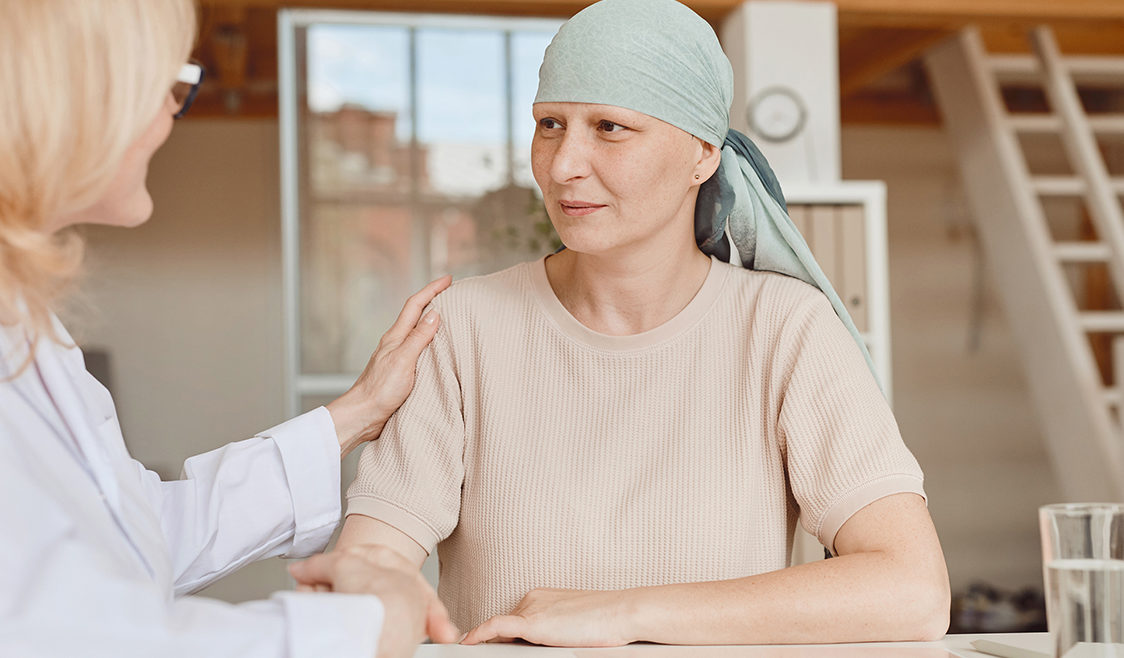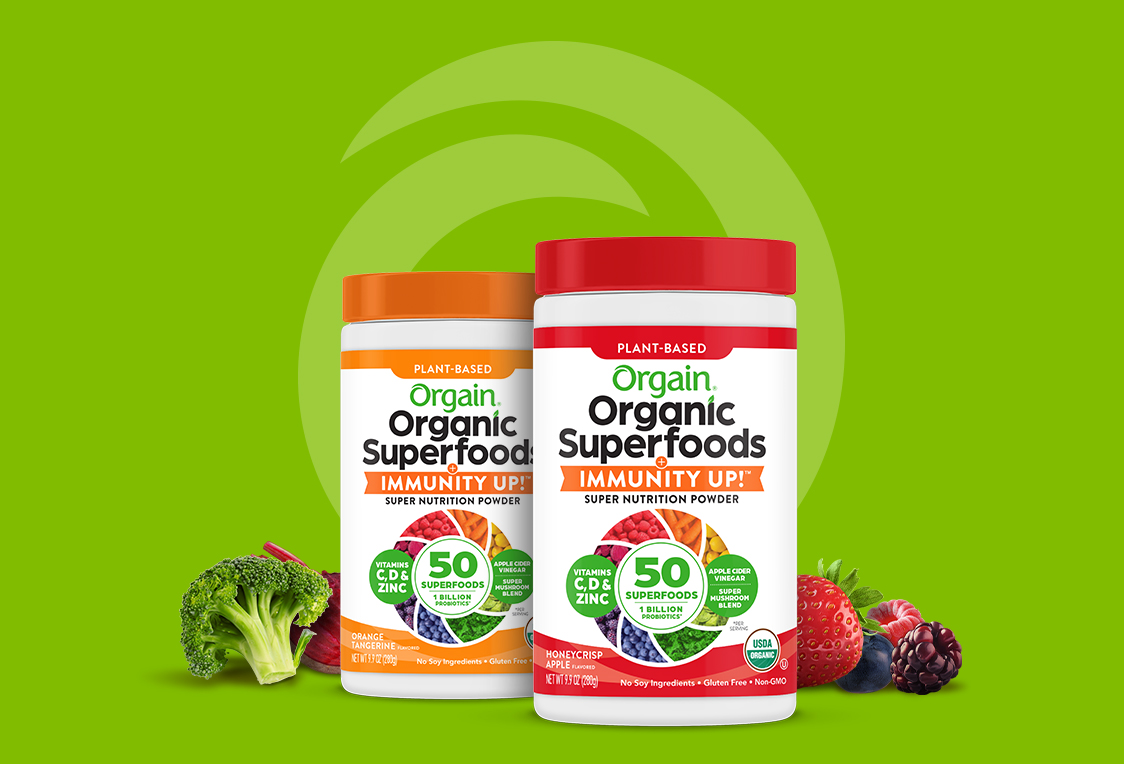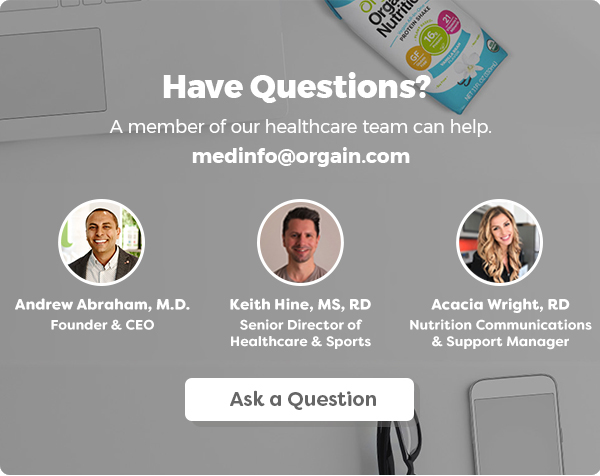
Nutrition Care in Cancer Treatment

In 2019, the World Health Organization estimated the worldwide incidence of cancer and found it to be the first or second leading cause of death before age 70 in more than 60% of the 183 countries examined. Around the world, the burden of cancer incidence is growing rapidly, with almost 10 million cancer deaths worldwide in 2020.¹
Population growth, an aging population, and socioeconomic factors are cited as reasons for the increase. Although economic and living conditions have improved in most countries, these improvements represent a complex issue.¹ Some of the environmental exposures and lifestyle changes associated with socioeconomic improvements that drive the incidence of cancer include tobacco use, overweight and obesity, lack of physical activity, low fertility and older age for first birth. These trends are valuable in predicting the future burden of cancer globally and allow experts to examine ways to modify cancer risk.²
Certain side effects of cancer and treatment can be helped with nutrition intervention. Nausea, weight loss, muscle loss and malnutrition are common side effects while undergoing cancer treatment, and many cancer survivors are motivated to seek out guidance on food choices and dietary supplements to improve quality of life and survival rate.³ It’s important to examine ways that healthcare professionals might better understand the role that nutrition can play in symptom management.¹
The European Society for Clinical Nutrition and Metabolism (ESPEN) Examines Cancer Survivors Attitudes Toward Nutrition Intervention
Cancer survivors at 20 different clinical sites in Ireland were surveyed about their attitudes toward nutrition, and since similar examinations have not been compiled, these findings were groundbreaking. Participants with all major types of cancer were represented in the surveys and 97.8% of respondents rated nutrition as important. Nearly 45% of respondents reported suffering from a diet-related problem, 45% reported having lost weight due to their cancer, and weight gain was reported by 23% of respondents.³
Without access to qualified healthcare practitioners, like dietitians, many people undergoing cancer treatment seek out unqualified and unreliable sources. In fact, more than one third of the respondents reported trying at least one of the following strategies; restrictive diets, vitamin/mineral supplements, herbal remedies, and juicing and detoxes without counseling from a qualified healthcare professional.³
Some cancer survivors do seek out qualified nutrition guidance, and this effort is backed by The European Society for Clinical Nutrition and Metabolism (ESPEN) as their 2017 guideline recommends that all cancer patients be screened regularly for malnutrition. Almost 40% of the respondents surveyed received treatment from a registered dietitian, and 93% rated the encounter as helpful. More than 55% of the respondents who did not see a registered dietitian stated that they would have liked more diet advice. The most common reason why respondents did not receive nutrition counseling was that a referral was not offered.³
Unintentional Weight Loss and Malnourishment in Cancer Treatment
Cachexia, the loss of muscle mass and body mass due to advanced malnutrition, is insidious.4,5 Unfortunately, much of the time, cachexia remains undetected and untreated. It has a dramatic impact on the patient’s quality of life and response to treatment is estimated to be responsible for up to 20% of cancer deaths. Up to half of all patients with cancer experience cachexia. Side effects of cancer progression and treatment including anorexia, decreased physical activity, decreases in secretion of anabolic hormones and metabolic changes leading to abnormalities in protein, lipid and carbohydrate metabolism are thought to be factors in the development of cachexia. It has been proposed that pro-inflammatory cytokine activity that results in systemic inflammation is at the root of cachexia.4
Physical Activity as a Countermeasure for Cachexia
Physical activity is a promising method for preventing cachexia. Although there are few studies on the effectiveness of physical activity against cachexia, exercise can help suppress the body’s inflammatory response to cancer through improvements in insulin sensitivity, protein synthesis, and anti-oxidative enzyme activity.4
Nutritional Interventions Can Help Malnourished Patients with Cancer Improve Quality of Life
A systematic review examined the effectiveness of nutrition consultation for cancer survivors. The results show mixed benefits on the clinical advantages of oral nutritional interventions, possibly due to a mixture of types and length of feeding interventions examined. Although the effects on body weight and energy intake are inconsistent, improvements in quality of life were noted. When compared with routine care, nutrition intervention was associated with a significant boost in energy intake, 430 kcal/day, and a weight gain of 1.9 kg.6
Many patients with cancer experience changes in appetite, food intake, and improper digestion and nutrient absorption. A registered dietitian can perform an assessment and nutritional screening to determine the best strategy for dietary recommendations.5
For those looking to increase protein intake based on a dietitian recommendation, Orgain has a variety of ready to drink shakes and protein powders that can be easily incorporated into smoothies and foods Alison Tierney, MS, RD, CD, CSO, Oncology Dietitian and Orgain Nutrition Advisory Board Member explains, “I’ve firsthand seen the power of plant-based nutrition to positively impact the lives of not only cancer patients, but any individuals seeking to live their best life. And in the high-paced, busy lives we live, the high standards Orgain applies to their products allows individuals to focus on high quality nutrition when we don’t have the time or energy to spend hours in the kitchen.”
Since many cancer patients and survivors are motivated to seek nutrition intervention to improve quality of life, this presents an opportunity for healthcare professionals to refer patients to a registered dietitian. The American Institute for Cancer Research issued recommendations for Living Well with Cancer and Beyond which includes a recommendation for cancer patients to ask their doctor about a referral to a registered dietitian and a certified exercise physiologist to focus on healthy changes that can help patients cope with cancer.7
![]()
1 Sung H. Ferlay J. Siegel R. Laversanne M. Soerjomataram I. Global Cancer Statistics 2020: GLOBOCAN Estimates of Incidence and Mortality Worldwide for 36 Cancers in 185 Countries. CA A Cancer Journal for Clinicians 2021; 0:1-41. doi: 10.3322/caac.21660.
2 Lortent-Tieulent J. Georges D. Bray F. Vaccarella S. Profiling Global Cancer Incidence and Mortality by Socioeconomic Development. International Journal of Cancer 2020; 147:3029-3036. DOI: 10.1002/ijc.33114
3 Sullivan E. Rice N. Kingston E. Kelly A. Reynolds J, et al. A National Survey of Oncology Survivors Examining Nutrition Attitudes, Problems and Behaviours, and Access to Dietetic Care Throughout the CancerJjourney. Clinical Nutrition ESPEN 2021; 41:331-339. https://doi.org/10.1016/j.clnesp.2020.10.023
4 Aoyagi T. Terracina K. Raza A. Matsubara H. Takabe K. Cancer Cachexia, Mechanism and Treatment. World Journal of Gastointestinal Oncology 2015; 7(4):17-29. DOI: 10.4251/wjgo.v7.i4.17
5 Gangadharan A. Eun Choi S. Hassan A. Ayoub NM. Durante G, et al. Protein Calorie Malnutrition, Nutritional Intervention and Personalized Cancer Care. Oncotarget 2017; 14:24009-24030.
6 Baldwin C. Spiro A. Ahern R. Emery P. Oral Nutritional Interventions in Malnourished Patients with Cancer: A Systematic Review and Meta-Analysis. Journal of the National Cancer Institute 2012;104:371–385. DOI: 10.1093/jnci/djr556
7 American Institute for Cancer Research. Living Well with Cancer and Beyond. 2019. Available at: https://www.aicr.org/wp-content/uploads/2020/01/CancerResource2019-1.pdf, accessed 3/28/2021.

Nutrition Advisory Board Member Spotlight: Alison Tierney, MS, RD, CD, CSO

This month, we are thrilled to introduce Nutrition Advisory Board Member, Alison Tierney, MS, RD, CD, CSO. Alison is a registered dietitian that is board-certified in oncology nutrition and owner of private nutrition practice, Wholesome LLC. While specializing in oncology nutrition, her expertise goes beyond cancer and involves helping others with the management of chronic diseases with a focus on a whole food, plant-based diet. Alison frequently shares her nutrition expertise and personal experiences with polycystic ovary syndrome (PCOS) as an expert podcast guest and speaker. Thank you to Alison for sharing her inspiring career and valuable insights!
1. We would love to hear about your journey toward becoming a Registered Dietitian Nutritionist. Why did you decide to pursue this profession?
If you look back at my high school yearbook, you’ll find me in the feature “Where Will You Be in 10 Years?” saying I would be a dietitian. But my career didn’t start on that path. After high school, I went to business school where I received a B.A. in Business Management with Leadership & Management since it felt like the right path as my family is full of entrepreneurs. During my time pursuing that degree, a nutrition class turned out to be my favorite class and turned me back to my original dream of becoming a dietitian.
After graduation and turning down a job offer in the financial field, along with the encouragement of my now husband, I went back to school to become a dietitian after my passion for nutrition grew after several of my family members were diagnosed with cancer. I couldn’t help but wonder, ‘How could nutrition have altered these paths? Could it help with prevention? During treatment? In survivorship?’ I sought every opportunity that I could to get oncology nutrition experience and I was fortunate enough to find several opportunities. I became increasingly passionate about the power of food and nutrition to prevent, fight, and manage cancer.
Since then, my passion for oncology and chronic disease nutrition has only grown. Although my journey to becoming a RDN wasn’t the traditional path many take, it was the perfect path for me and I’m fortunate enough to be in the perfect career for me – an entrepreneur registered dietitian.
2. What is the most rewarding part of the work you do?
There is no doubt the field of oncology and chronic disease nutrition presents its challenges – especially as an entrepreneur. However, the most rewarding part of my work is watching individuals change their lives by helping to empower them with food and nutrition. I believe my work goes above and beyond what someone eats, but the journey for them to live their best life. Watching these transformations makes all of the challenges that come with it absolutely worth it!
3. What is one of the most frequently asked question that you receive from patients and what are your recommendations?
As registered dietitian focused on a plant-based nutrition approach, the most frequently asked question I receive is if it’s difficult for an individual to meet their nutrition needs through plants alone. And although there is a bit of a learning curve for an individual who didn’t grow up with a plant-based lifestyle, it is easier than most believe it is. I focus on meeting an individual with where they are at and help them work towards their ultimate goal with small, intermediate goals along the way. Whether an individual seeks to have an entirely plant-based diet or simply a plant-forward approach (both are great!), I recommend starting by adding whole, plant-based foods rather than focusing on the elimination of certain foods. Shifting one’s mindset to this approach makes the transition to a completely nourishing plant-based lifestyle not only easier, but also delicious!
4. What area of nutrition research are most interesting to you?
Practicing with evidence-based nutrition is incredibly important to me! Although a lot of nutrition research interests me, I’m very interested in seeing more information related to nutrition approaches during cancer treatment as it relates to side effect management, in addition to the gut microbiome – where research continues to explode!
5. What interested you in becoming a member of the Orgain Nutrition Advisory Board?
I have recommended Orgain products to my oncology patients for many years due to the company’s focus on clean ingredients and nutrition. I value Orgain’s approach to creating products to meet the many needs of individuals with different nutrition preferences, including the plant-based and vegan lifestyle. To be part of the Orgain Nutrition Advisory Board, along with many incredible nutrition experts, I found it as an excellent opportunity to contribute to continued advancement in the nutrition field and nutrition product marketplace with an evidence-based nutrition approach while helping to meet the needs of consumers who place a high value on their overall health.

New Product Alert: Superfood + Immunity Up!™ Super Nutrition Powder

Orgain recognizes that good nutrition is essential to building a strong immune system and created Superfood + Immunity Up!™ Super Nutrition Powder for individuals looking to support their immunity with high-quality ingredients that taste great. In addition to being an excellent source of key immune-supporting nutrients like vitamin C, vitamin D and zinc, our new Superfood + Immunity Up!™ Super Nutrition Powder includes a super mushroom blend of reishi, cordyceps and ashwagandha, along with 50 organic superfoods including fruits, veggies, super berries, turmeric, and wheatgrass. Since a healthy gut may contribute to better overall health and immune function, this easy-to-dissolve powder also includes 1 billion probiotics (Bacillus Coagulans) and 4 grams of organic prebiotic fiber per serving.

Share Your Opinion
We asked Orgain’s Healthcare Ambassadors to share which ingredients they talk about the most with their patients and clients. Here is what your colleagues had to say:
“For me, protein, added sugars and healthy fat sources are hot topics. Also, teaching my clients how to reach both nutrition and ingredient labels.”
– Amy Kubal, RD
“When it comes to ingredients, I recommend stocking a pantry with versatile options that could be used in many ways – but beyond that, have some additional health benefits. For example, finely ground flax is super versatile, but also high in healthy fats and rich in fiber which helps digestion. I also love Orgain protein powders that could be included in oatmeal, smoothies, etc., but also packs a punch of protein and other nutrients to support overall health.”
– Samina Kalloo, RDN, CDN
We value the expertise of healthcare professionals and want to hear from you! Join the conversation and share your opinion in the Orgain Healthcare Ambassador Collective group on Facebook for a chance to be featured in next month’s newsletter!
Amid these warmer months, what are your tips for helping individuals stay hydrated?
Click here to weigh in with other Orgain Healthcare Ambassadors! If you haven’t already, request an Ambassador account, then join the private group on Facebook. We look forward to hearing from you!

Upcoming Orgain-Sponsored Live Webinars by Subject Matter Experts

Kathleen M. Zelman, MPH, RDN, LD
Approved for 1.0 CPEU for RDNs and DTRs
June 10, 2021 at 2pm EDT
REGISTER HERE

Becca McConville, MS, RD, LDN, CSSD, CEDRD-S
Approved for 1.0 CPEU for RDNs and DTRs
August 12, 2021 at 2pm EDT
REGISTER HERE

David L. Katz, MD, MPH, FACPM, FACP, FACLM
Approved for 1.0 CPEU for RDNs and DTRs
September 9, 2021 at 2pm EDT
REGISTER HERE

Beryl Krinsky, MBA, MS, RD, LDN
Approved for 1.0 CPEU for RDNs and DTRs
October 7, 2021 at 2pm EDT
REGISTER HERE

Angela Manderfeld, MS, RD, CDCES, BC-ADM
Approved for 1.0 CPEU for RDNs and DTRs
November 11, 2021 at 2pm EDT
REGISTER HERE

Practitioner Testimonial
“I think the direct-to-patient sampling program is one of the best, most convenient ways to receive samples to their homes during the pandemic that I’ve seen so far. The option for patients to also see the tracking information is an added bonus! My patients have been appreciative they don’t have to go out shopping during the pandemic, and that they have the option to still try before buying.”
– Elizabeth
Oncology Dietitian




